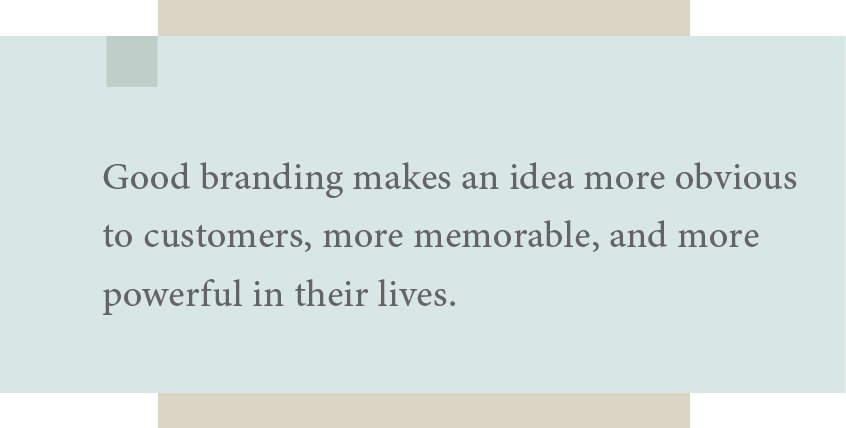Valuing the Agile Local Business
“DesignWrite” was created by Thomas Anstadt to explore design and business-related topics.
Community Impact
Having a consistent brand is more essential today than ever. There are numerous reasons for this, one being the consolidation of businesses. When national or big-box brands buy out a local small business or corporation, they often eliminate processes and employees.
The effects on a community are noticeable when a big-box brand opens a new outlet store or buys out a local, small business. There seems to be a mix of positive and negative outcomes. When a big-box brand moves into a new community, it can create jobs and attract new residents. However, competing businesses often shut their doors, while others assimilate into the big-box brand. The original business name changes, and every benefit gained by thinking locally is lost. From personnel to product changes, expect the unexpected.
Those changes will also burden the community. To illustrate this scenario, let us consider the effects it might have on a local carpenter. Mr. Johnson, a local carpenter, dealt with Mr. Anderson, the owner of the local lumberyard. A big brand buys out the lumberyard and enforces a no-credit policy and then closes Mr. Johnson's charge account—without any notice—and refuses him credit to purchase new materials. His prior relationship with Mr. Anderson is of no concern to the big brand. Now, its only concern is following processes and policies that meet the bottom line.
A customer-centric approach not only fosters loyalty but also opens avenues for innovation, as small businesses experiment with new ideas that larger firms may be hesitant to pursue.
Meeting the bottom line is often obstructive to developing good customer service. Customer service is the glue in the relationship Mr. Johnson developed with Mr. Anderson—it is what maintained his loyalty to the local lumber yard and its loyalty to the community. Now, that journey of trust has broken, and Mr. Johnson will need to delay client projects and charge materials to a high-interest credit card, which eventually causes him to increase his rates. The final result is a weakened economic outlook for the local community.
A Failure to Understand
Small businesses are necessary to maintain the vitality and prosperity of communities. The number of people living within a community is often the direct result of its success. And the quality of service and the overall efforts small businesses provide to their community are what count the most.
In contrast, big brands invest considerably more time and effort into their numerous checks and balances to appease their executives and shareholders, who only profit from meeting the bottom line. As Mr. Johnson experienced, those checks and balances frequently fail to provide products and services of any real value, but instead place a financial burden on their customers and the local community.
When a representative takes the time to understand and empathize with a customer's needs, it creates a positive experience that goes beyond transactional interactions.
Image: Handshakes matter.
Often, company executives focus on creating overly complex processes and customer relationship policies because they are unfamiliar with the community. Their customer relationship practices are generally rigid and fail to consider the real needs and desires of customers. (They certainly did not care about their relationship with Mr. Johnson!) Their decision-making processes take a tremendous amount of effort and time and are ultimately not very agile. One can only imagine the amount of time and resources it would take to brand and launch a new product or service that would be needed and valued by its customers.
Agility Makes Sense
A big brand may seem the best option at first glance because size, abundance, and flashy appearance are appealing to potential customers. But they are frequently burdened with the same overly complex and bureaucratic processes and policies that forced Mr. Johnson to delay client projects and increase his rates. How can that be helpful to the local community? One can only reason that establishing a consumer relationship with an agile small business makes sense for everyone.
Small business leaders are exceptional at developing valued products and services because they live, work, and shop within a community. They have learned through firsthand experience that rigid business practices and policies do not provide real value to customers. Because of those experiences, it is only natural for a small business to place more value on customer needs and desires by working in a manner that addresses those issues.
A culture centered around exceptional customer service leads to happier, more engaged employees, as they take pride in their roles and their contributions to customer satisfaction.
Image: Passionate teamwork.
Appearance and size should not disqualify them, but just the opposite. Small businesses tend to be as qualified or an exceptional choice because of their talent and desire to provide personalized services with direct contact with the people doing the actual work. Plus, they can respond quickly to market changes and accelerated timelines. Small businesses excel at creating streamlined business practices that their customers value.
In Conclusion
Small businesses create the same great work, products, and services, but they do not focus on having more and being flashy like the big brands. They enjoy being small. Small businesses are even more qualified because of their talent, drive, and desire to provide personalized and valued products and services. To them, building customer relations takes priority over meeting the bottom line, which increases their profits.
In a crowded marketplace, strong branding can set a business apart, establishing its presence as not only recognizable but also trusted and respected.
It takes continual effort to establish a successful brand, big or small. The process should not include creating a rigid set of processes and policies—they only financially benefit executives and shareholders—because they will certainly hinder those efforts. That is bad branding. As Mr. Johnson experienced, they do not create value for the customer or the local community. Creating exceptional customer experiences creates value—it is good branding.
Finally, remember to take the time to research small businesses in your area when you need a new product or service. Then choose one that focuses on providing agile and personalized customer service. Not only will your efforts afford a small business your patronage, but you will also contribute to the prosperity and vitality of your community. It is a win-win scenario! –end
Please feel free to email Thomas with questions or suggestions about the posted articles. I would appreciate the input.
And please, comment, like and share!






